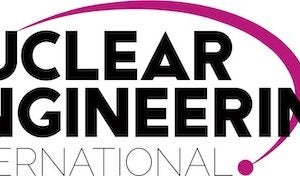Though nuclear is regaining support in Europe, the significance of that resurgence varies among European countries. Some governments have reappraised their nuclear energy strategy in the aftermath of the 2011 Fukushima disaster. In most countries it is still considered a decarbonisation option providing most of low-carbon electricity consumed. Risks related to nuclear are foreseen differently in different member states. While some states are not willing to take risks and are opposed to nuclear power (Germany, Italy, Switzerland and Belgium), others remain committed to nuclear power (France, UK, Spain, Netherlands, Czech Republic, Poland, Romania, Hungary and Finland). At the end of 2010, Europe had 147 reactors operating at a net capacity of 134.8 GW. As of January 2013, the number had dwindled to 136 reactors operating at a net capacity of 125.2 GW, due to the shutting down of eight nuclear reactors in Germany as a repercussion of the Fukushima incident in Japan. Europe has 30 reactors under construction, planned and proposed. New power plants would not only drive the future of nuclear industry in Europe, but will also develop Europe’s competitive edge in the global arena.
The Fukushima Daiichi disaster has triggered a contentious debate among the European states regarding the continued use of nuclear energy and its expansion in the future. The question of which energy strategy is most sustainable remains — should Europe remain committed to nuclear power or phase it out and resort to other alternatives?
An example of a country aggressively phasing out nuclear is Germany. Until March 2011, Germany obtained 28% of its electricity from nuclear, using 17 reactors. Post-Fukushima however, it has decided to shut down all of its nuclear plants by 2022. A total of eight reactors with 8336 MW net capacity was shut down in 2011, which constitutes about 6.4% of the country’s generating capacity. The country’s recent energy strategy is to increase generation from renewable sources from 17% to 25% and reduce carbon emissions by 40% by 2020.
Anti-nuclear moves were also announced by Switzerland and Italy. Switzerland plans to phase out its five ageing nuclear plants between 2019 and 2034. Italy’s plans to build a new nuclear plant were derailed due to lack of public support. Belgium’s political parties have reached a conditional agreement to phase out nuclear power in a two-step phase out approach, by closing its oldest reactors by 2015 and the remainder by 2025. France, Finland, UK and Sweden have reaffirmed their commitment to nuclear power. Central and Eastern European countries such as Poland, Romania, and the Czech Republic are also planning to push ahead with new units, following increased safety assessments.
The Fukushima incident has increased scrutiny of plants’ safety and the implementation of emergency measures to assess reactor designs and manage the spent nuclear fuel. Nuclear energy constitutes more than 30% of European Union’s energy generation. Though the design, technology and monitoring of many reactors has improved, there are major apprehensions regarding safety and disposal of radioactive waste. Even though the closure of nuclear power plants could not be enforced legally at the EU commission level, public pressure could make governments review or close plants if necessary.
According to the results of the EU stress tests, hundreds of potential improvements were identified for reactors in Europe. Meeting them could cost €25 billion. Although most of the plants need some sort of an upgrade or repair, the commission has not recommended closure of any units.
The potent twin attractions of nuclear — energy security and zero carbon emissions — remain strong arguments in its favour. It is difficult to envisage Europe retreating from nuclear power. Germany is anticipated as a potentially self-sufficient nation in terms of power generation especially through the renewables. However, the economic choices could prove tougher, elsewhere in Europe.
At least for the next ten years European countries cannot afford to remove nuclear energy from their generation mix, though a few nations like Germany are politically influenced to phase out nuclear power. Phasing out nuclear power would not only reduce Europe’s chances of meeting its climate goals and reducing greenhouse gas emissions, but will also increase its dependence on fossil fuels and make it difficult to balance the intermittency of renewables.
Nuclear energy continues to be a pivotal and attractive option for Europe. Though nuclear projects have been delayed across Europe as a repercussion of Fukushima, and may remain dormant due to public and political pressures for a short term until safety issues are addressed, nuclear power will play an active role in Europe’s energy mix and in meeting the region’s environmental goals.
This article is based on Frost & Sullivan’s report ‘European Nuclear Power Sector — Trends and opportunities’ (M7D5-14), published in October 2012.






